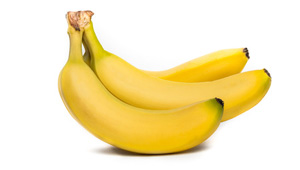Food poisoning is a seriously unpleasant experience and one that can leave you feeling incredibly drained and tired. This is caused by eating contaminated foods, which will then trigger vomiting, diarrhea and nausea. Normally, this will pass after a couple of days but it can still take a while to feel ready to face rich foods. Understandably, you might also be feeling a little burned by food and want to proceed with caution before you ingest anything else that might cause another violent reaction!
The Immediate Aftermath
While food poisoning is usually relatively safe (unless you are pregnant or have other conditions that may lead to complications), it can quickly lead to dehydration. This makes it particularly important to rehydrate and to take in plenty of fluids in the immediate aftermath. Drink lots of water during and after the vomiting and diarrhea to make sure that you don’t become dehydrated and then continue to afterward to help flush out your system.
If you are very fortunate and you realize that you have consumed something that is likely to be contaminated immediately, then you can try taking some activated charcoal immediately afterward which may be able to prevent the bacteria from taking effect.
Move On to Bland Foods
 Next, try moving on to bland foods. You probably won’t want to face anything too rich just yet anyway and that’s fine – but it is important that you start getting some sustenance in you and that you line your stomach.
Next, try moving on to bland foods. You probably won’t want to face anything too rich just yet anyway and that’s fine – but it is important that you start getting some sustenance in you and that you line your stomach.
The acronym BRAT can be useful to keep in mind. This stands for ‘bananas, rice, applesauce and toast’. Other blander foods such as crackers, oatmeal or porridge can also work well, as can bread and butter.
 Conversely, you should avoid anything that can be difficult to digest which includes greasy or spicy foods, anything with too much sugar or alcohol. You should also avoid caffeine as this will act as a diuretic which is really not what you need right now!
Conversely, you should avoid anything that can be difficult to digest which includes greasy or spicy foods, anything with too much sugar or alcohol. You should also avoid caffeine as this will act as a diuretic which is really not what you need right now!
Something else that can help as you continue to recover is to use probiotics. These include lactobacillus acidophilus and lactobacillus bulgaricus which can be found in various yogurts and probiotic drinks containing live active cultures. Fermented foods can also help. This will benefit you by helping to restore the balance of healthy bacteria in your stomach to improve digestion and help produce necessary hormones and neurotransmitters.
How to Avoid Future Cases
No matter what you eat subsequently, you’re going to want to do whatever you can to avoid a repeat of what just happened. If you suffered from food poisoning, then this is likely due to bacteria such as salmonella, e. coli enteritis, staphylococcus aureus etc.
This in turn is likely caused by food not being stored or cooked at the proper temperature, which can cause the bacteria to form and then not be killed off during cooking. Likewise, bacteria can be passed to food if those preparing it don’t thoroughly wash their hands.
Always wash your hands properly before cooking and always be sure to avoid eating in places where you suspect the quality standards may be low. At the same time, consider that some types of food are more likely to be contaminated than others as they may carry bacteria (chicken for instance is more likely to carry salmonella). Look out for any signs that meat hasn’t been cooked properly (such as pinkness) and always cut one piece of meat in half when cooking to ensure it is cooked through (otherwise you can use a temperature fork).



